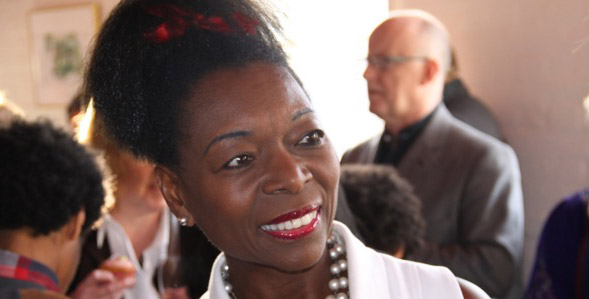
House of Lords, 18th October 2012
Baroness Benjamin: My Lords, I, too thank my noble friend for securing this important debate on education, which allows us to discuss how we can nurture and inspire future generations to aspire.
My mum always used to say, “Education is your passport to life. Go to school and learn to the best of your ability because you can use that gift of education to change the lives of others”. That is why we must make sure that we give all children every opportunity to secure that special gift of education to reach their full potential. However, not all children get that opportunity, especially if they are at a disadvantage and cannot learn at the same pace as others in the class. So there is a need for creative ways to assist these children in order to make them feel included and for them to achieve their best.
One way to assist those with learning and communication difficulties, emotional and behavioural problems, as well as ADHD, is through the use of music. Research has shown that music can produce exceptional results in learning. Children with autism can also significantly benefit from learning through music. Research has shown that if a child is taught a poem without music, they forget it by the following week, but if they learn the poem musically, they remember each word perfectly a week later.
However, music should be available not only for children with learning difficulties; it should be part of all children’s cultural well-being. Research evidence has shown that a quality music education can improve academic attainment in areas such as numeracy, literacy and language.
Sadly, because of money restraints, not all schools view music as a priority, and the responsibility has fallen to many charitable organisations to bridge this gap. Organisations such as the World Heart Beat Music Academy provide musical experiences for children and young people of all social and cultural backgrounds. It gives them a sense of purpose. One young person who has benefited from the academy said, “If it wasn’t for playing music, I wouldn’t be alive. I used to carry a knife a few years ago, but music changed all that. Playing an instrument is my protection now- I just don’t need any knives or weapons on me.” Another commented, “It’s all about gangs these days. You can see the difference between those who do music and those who don’t. We have something to take our minds off things. Instead of going out on the streets and selling drugs and stuff, we have music.” Learning and playing music with others enables young people to feel that they are a part of something- something that nobody can take away from them.
In the current global economic situation, where the widening “have” and “have not” gap has marginalised young people who can see no way out of their disadvantage and isolation, the power of music can transform their lives. The Henley review stated:
“There remains a great deal of patchiness in provision of Cultural Education across England”.
So I ask my noble friend whether the Government will encourage all schools to make adequate provision for music a priority, especially where children are in need of this type of stimulant for their mind, body and soul, and, most importantly, for their well-being, to help them to go out into the world and make a difference to society- for good.
